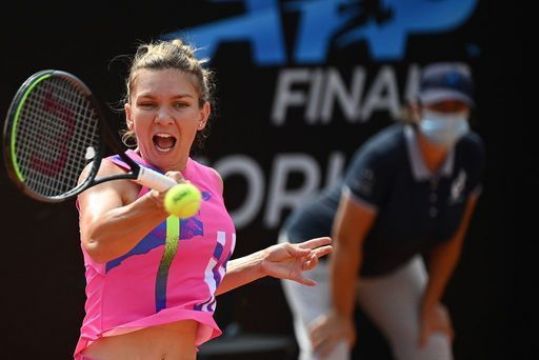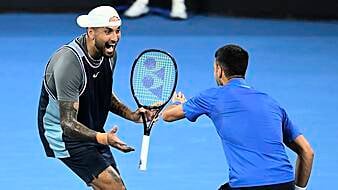Australian Open players have been told not to feed mice at their quarantine hotel in Melbourne after world number 28 Yulia Putintseva complained she could not sleep for the rodents scurrying around her room.
The Kazak swapped rooms earlier this week after finding a mouse but said her new room was also infested. She shared a video of a mouse jumping out from behind a closet on social media.
it’s actually a lot of them! Not even 1 in my room now??♀️ pic.twitter.com/uUaicOhoB5
— Yulia Putintseva (@PutintsevaYulia) January 19, 2021
Victoria state police minister Lisa Neville said on Wednesday authorities would take care of pest control but suggested there might be more to the story. “As I understand there may have been some feeding going on,” she told reporters, without revealing the source of her information. “I'd just encourage them to minimise interaction with the mice, we will keep doing pest control if we need to, but hopefully that pest control work that was done this week will have fixed the problem.”
More than 70 players and their entourages are confined to their hotel rooms for 14 days and unable to train for the February 8th-21st Australian Open after passengers on three charter flights returned positive tests for the novel coronavirus.
Putintseva said her new room had more mice than the old one. “It's actually a lot of them! Not even 1 in my room now,” she wrote on Twitter.
“Different room same story - wanted to go to sleep but noooope." She added that reception had told her the hotel was full and that they could not help her. “It's a joke,” she said.
On Instagram, Putintseva also complained of not being able to open windows in her room. She held up a sign saying: “We need fresh air to breathe.”
A number of players have complained about the conditions, drawing a fierce backlash from Australians, with thousands of the nation's citizens remaining stranded overseas due to Covid-19 travel restrictions.
However, Australian Open tournament director Craig Tiley on Tuesday said "the vast majority" of players were supportive of the strict protocols.







